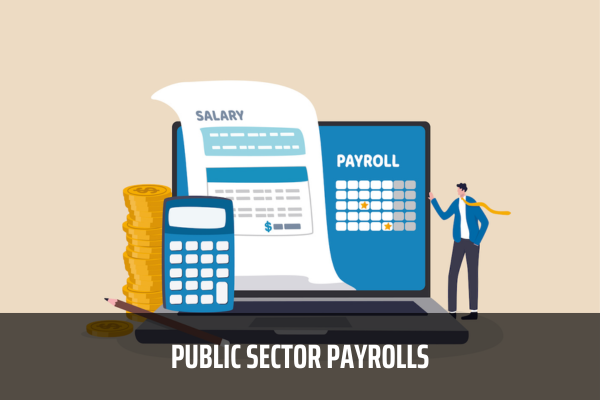What is the summary of new payrolls for the public sector after the salary reform in Vietnam in 2024?
- What is the summary of new payrolls for the public sector after the salary reform in Vietnam in 2024?
- Which 5 allowances will be annulled or reduced after the salary reform in Vietnam in 2024?
- What are the guidelines for the salary and income management mechanism in the public sector in Vietnam under Resolution 27?
What is the summary of new payrolls for the public sector after the salary reform in Vietnam in 2024?
Pursuant to Resolution 104/2023/QH15, comprehensive salary policy reform will be implemented according to Resolution 27-NQ/TW in 2018 from July 1, 2024.
Specifically, pursuant to Resolution 27-NQ/TW in 2018, when implementing salary reform 2024, new payrolls will be formulated and issued based on job positions, job titles, and leadership positions to replace the current payroll system. The transition from old salaries to new salaries will be ensured, guaranteeing that they are not lower than the current salary enjoyed.
The new payrolls applicable to the public sector when implementing salary reform 2024 include:
Payroll 01:
Leadership position payroll applicable to officials and public employees holding leadership positions (elected and appointed) in the political system from central to commune level.
Payroll 02:
Professional and technical payroll based on officials' ranks and public employees' professional titles, applicable to officials and public employees without holding a leadership position.
Payroll 03:
Payroll applicable to military officers, officers and non-commissioned officers of public security forces (based on military ranks or ranks).
Payroll 04:
Payroll applicable to professional military servicemen, technical officers of public security forces.
Payroll 05:
Payroll applicable to defense workers, police workers (including maintaining the salary ratio of the armed forces to administrative officials as it currently stands).
Therefore, the 5 new payrolls will be applied to 9 job positions, including
Officials and public employees holding leadership positions
Officials and public employees without leadership positions
Police officers.
Military officers.
Professional soldiers.
Technical police officers.
Defense workers.
Police officers.

What is the summary of new payrolls for the public sector after the salary reform in Vietnam in 2024? (Image from the Internet)
Which 5 allowances will be annulled or reduced after the salary reform in Vietnam in 2024?
Pursuant to Resolution 27-NQ/TW in 2018, the content regarding allowances is as follows:
II- DIRECTION, OBJECTIVES, AND CONTENT OF REFORM
...
3. Reform content
3.1. For officials, public employees, and armed forces (public sector)...
d) Rearrange current allowances, ensuring that the total allowance fund accounts for a maximum of 30% of the total salary fund.
...
- Annul seniority allowances (except for the military, police, and certain essential positions to ensure salary parity with officials); leadership position allowances (as salary for leadership positions is determined within the political system); party and socio-political organization work allowances; official duty allowances (as they have been incorporated into the base pay); hazardous and dangerous allowances (as conditions of hazardous and dangerous labor have been included in occupational allowances).
...
Therefore, when implementing salary reform 2024, the following 5 allowances will be annulled:
+ Seniority allowances (except for the military, police, and certain essential positions to ensure salary parity with officials);
+ Leadership position allowances (as salary for leadership positions is determined within the political system);
+ Party and socio-political organization work allowances;
+ Official duty allowances (as they have been incorporated into the base pay);
+ Hazardous and dangerous allowances (as conditions of hazardous and dangerous labor have been included in occupational allowances).
What are the guidelines for the salary and income management mechanism in the public sector in Vietnam under Resolution 27?
Resolution 27-NQ/TW in 2018 provides guidelines for the salary and income management mechanism to implement the salary reform policy in 2024 as follows:
- The heads of agencies, organizations, and units that regularly use the salary fund and annual allocated funds for hiring experts, scientists, and individuals with special talents to carry out the tasks of the agency, organization, or unit and determine the corresponding income levels based on the assigned tasks.
- The heads of agencies, organizations, and units establish regulations for periodic rewards for the subjects under their management, linked to the assessment results and performance ratings of each individual's job completion.
- Expand the pilot mechanism to some centrally-governed provinces and cities that have balanced their budgets and ensured sufficient resources to implement the salary reform. Social security policies will provide additional average income not exceeding 0.8 times the basic salary fund for officials and public employees within the scope of management.
- Public service providers independently ensure regular expenditures and investment expenditures, or independently ensure regular expenditures and state financial funds outside the state budget, applying a self-financing salary mechanism based on operational results similar to enterprises.
- If public service providers ensure a portion of regular expenditures and public service providers funded entirely by the state budget ensure all regular expenditures, they will apply a salary regime similar to officials. The actual salary paid is linked to the position, job title, and occupation of public employees, determined by the head of the public service provider based on sources of revenue (from the central state budget and the unit's revenue), labor productivity, job quality, and work efficiency according to the salary payment regulations of the unit, not lower than the salary regime prescribed by the State.
LawNet